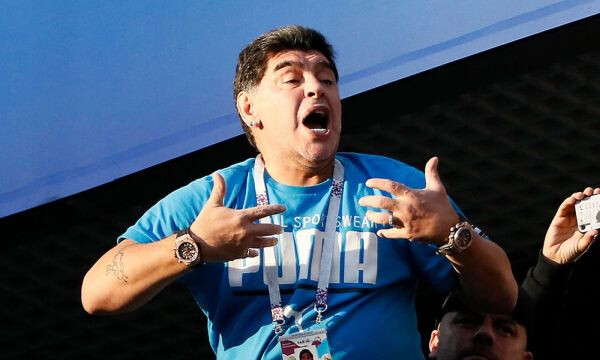
BUENOS AIRES, Argentina – The future of the trial involving seven medical professionals charged with 'culpable homicide' in connection with the 2020 death of football legend Diego Maradona has become uncertain. One of the three Argentine judges presiding over the case, Julieta Makintach, stepped down last Tuesday amid allegations of ethical violations. This resignation has sent shockwaves through the Argentine legal community and reignited public interest in uncovering the truth behind Maradona's death.
Resignation Over Documentary Filming Allegations
Judge Julieta Makintach withdrew from the case after a video surfaced showing her being interviewed by a camera crew in the hallways of the Buenos Aires courthouse and in her office. The footage appears to be part of a documentary production, and court regulations prohibit judges from giving such interviews while a trial is ongoing.
Judge Makintach's actions drew criticism for potentially undermining the trial's fairness and independence. The judiciary is expected to be free from external influence during proceedings, and particularly, any prior commentary on the parties or content of a trial is strictly forbidden. The possibility of parts of the trial process being exposed externally under the guise of documentary filming was also raised as a concern. Ultimately, as the ethical controversy grew, Judge Makintach decided to recuse herself from the case.
Her resignation leaves a vacancy on the judicial panel, requiring the Maradona death trial to reconfigure its proceedings. This will likely further delay a verdict in a case that has already been ongoing for several years, potentially leading to dissatisfaction from the family and the public.
Maradona's Death and 'Culpable Homicide' Charges
Diego Maradona, a World Cup winner and an absolute hero in Argentina, died on November 25, 2020, at the age of 60. While the official cause of death was heart attack, suspicions of medical malpractice surrounding his death have persisted. Maradona had undergone brain surgery shortly before his death, and claims emerged that inadequate care by medical staff during his recovery led to his demise.
Consequently, Argentine prosecutors charged seven medical professionals who cared for Maradona with 'simple homicide with eventual intent.' This charge applies when there is no direct intent to kill, but the perpetrator was fully aware or could have foreseen that their actions might lead to death, yet disregarded this possibility, resulting in death. If found guilty, the defendants could face prison sentences ranging from 8 to 25 years.
Those charged include neurosurgeon Leopoldo Luque, psychiatrist Agustina Cosachov, psychologist Carlos Diaz, medical coordinator Nancy Forlini, and three nurses (Richard Almirón, Dahiana Gisella Madrid, and Mariano Perroni). All of them deny the charges, asserting that their medical judgments and actions were the best they could provide.
The trial began on March 11 in South America, drawing significant attention in Argentina, where Maradona is revered as a football hero, to uncover the truth surrounding his death.
Key Issues and Future Outlook of the Trial
The main issues in this trial are whether the medical professionals were negligent and if that negligence directly contributed to Maradona's death. The prosecution is expected to argue that the medical team failed to properly assess Maradona's health and provide adequate treatment and care, leading to his death. Specifically, the decision to discharge him after brain surgery, insufficient medical monitoring at home post-discharge, and inadequate response during an emergency situation are likely to be key points of contention.
Conversely, the defense attorneys for the accused are expected to counter that Maradona's health was inherently complex, and that his voluntary non-compliance with medical instructions and drug addiction were greater contributing factors to his death. They will also emphasize that they did their best as medical professionals and that his death was an unforeseeable outcome.
Judge Makintach's resignation will significantly impact the trial. Proceedings will be delayed until a new judge is appointed, and it will take time for the new judge to familiarize themselves with the case. This will likely prolong an already years-long trial. Furthermore, the judge's resignation could raise doubts about the trial's fairness, which could affect public confidence in the verdict.
Maradona's family is demanding a transparent and swift truth-finding process and is expected to express strong dissatisfaction with this development. Football fans worldwide are also hoping for the truth about Maradona's death to be clearly revealed.
This trial is more than just a medical malpractice case; it will serve as an important example of the transparency and fairness of Argentina's judicial system and how trials involving socially influential figures are conducted. All eyes are on what conclusion the Maradona death trial, made even more complex by Judge Makintach's resignation, will reach, and what additional controversies might arise during the process.
[Copyright (c) Global Economic Times. All Rights Reserved.]






























